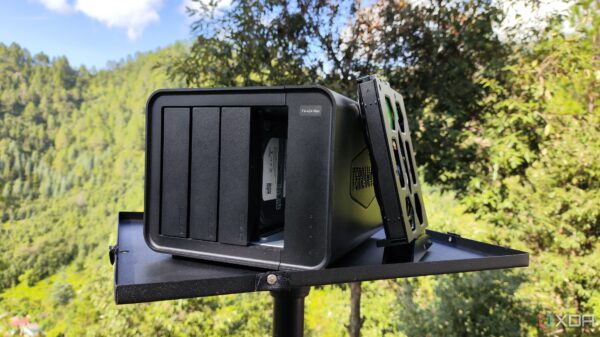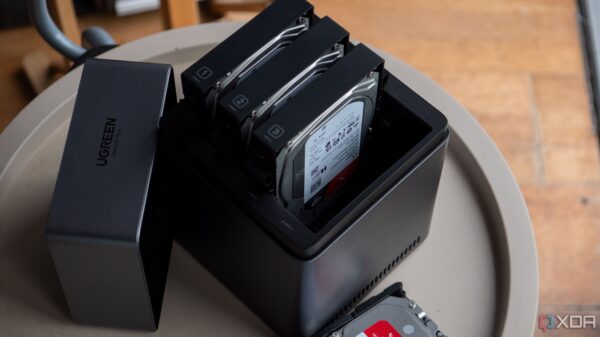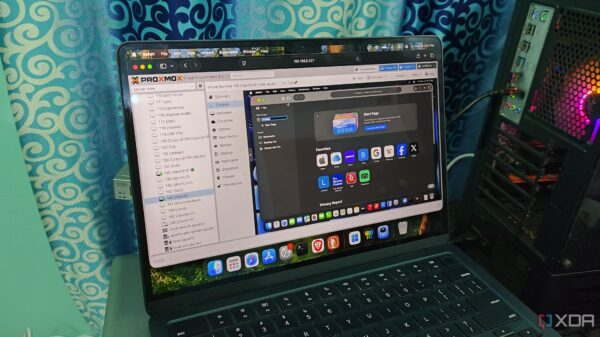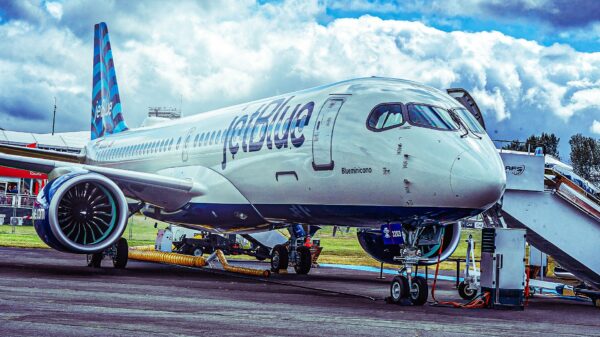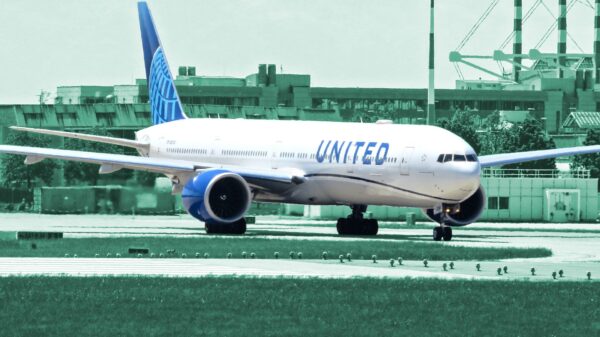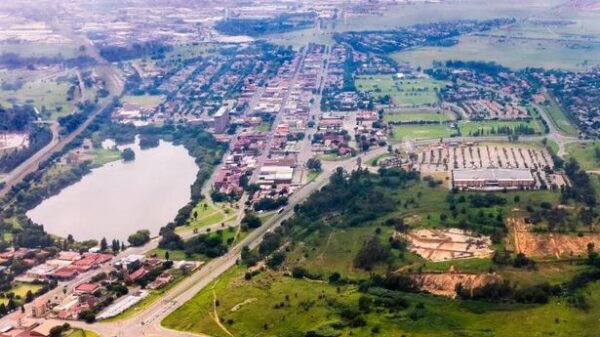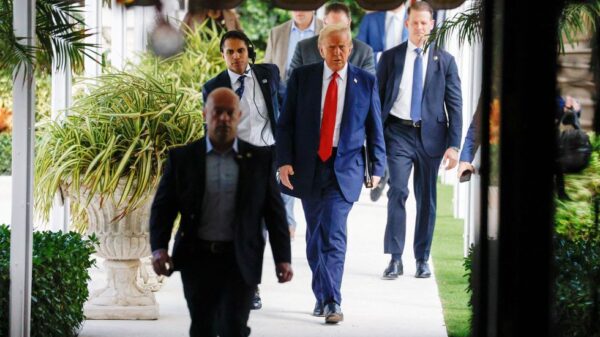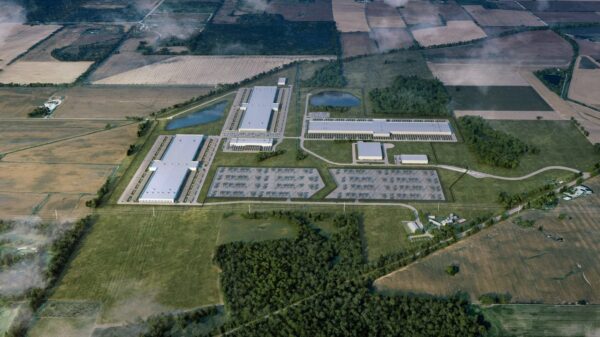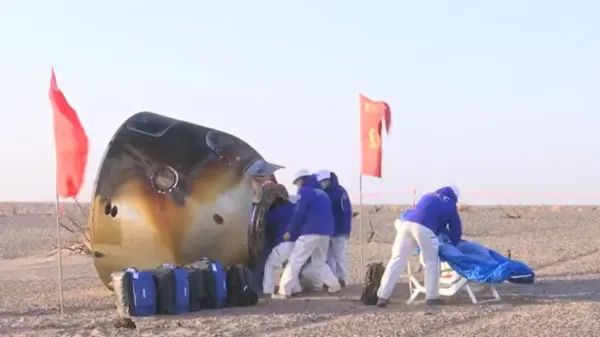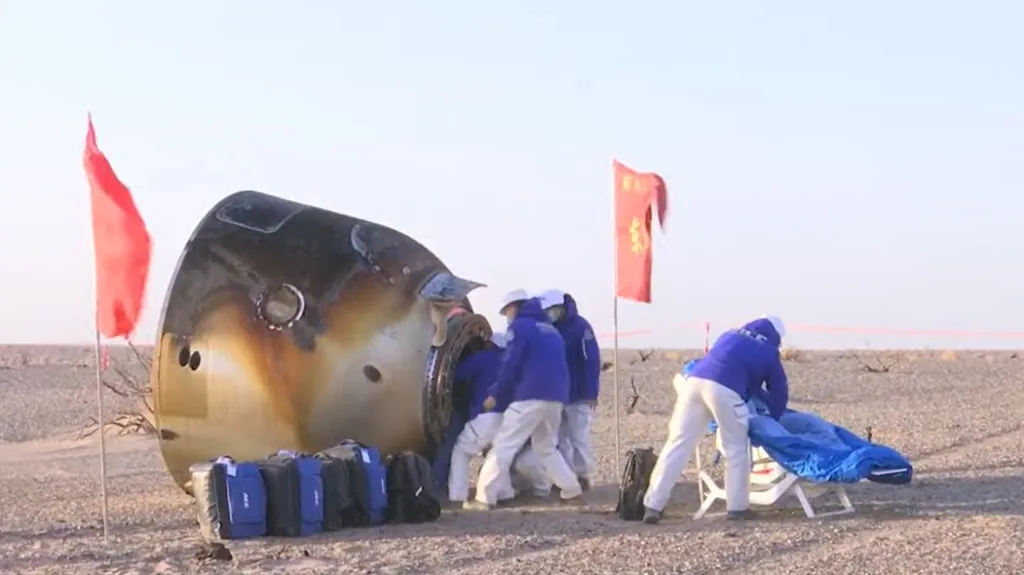On November 14, 2025, the crew of the Shenzhou-20 spacecraft successfully returned to Earth after a week’s delay caused by damage from space debris. The delay was necessitated by an impact that cracked a window on their spacecraft, compelling the crew to depart from China’s Tiangong Space Station aboard the newly arrived Shenzhou-21 spacecraft.
Originally scheduled to return on November 5, the crew members—Chen Dong, Chen Zhongrui, and Wang Jie—remained at the station while six taikonauts conducted inspections of their spacecraft. The China Manned Space Agency (CMSA) provided ongoing support during this assessment. On November 11, the China Manned Space Engineering Office (CMSEO) issued a statement confirming that plans for a backup return were in place.
The crew departed the Tiangong station at 10:14 p.m. EST (7:14 p.m. PST) on November 13, 2025, after the Shenzhou-20 was deemed unsafe for flight. They landed in Inner Mongolia at 11:14 a.m. Beijing Time on November 14 (9:14 p.m. EST, 6:14 p.m. PST on November 15). Medical teams assessed the crew upon landing and confirmed their good health, as reported by the state-owned media company Xinhua.
“Space exploration has never been easy for humankind. This mission was a true test, and we are proud to have completed it successfully,” Chen Dong told reporters after their return. He added, “China’s space program has withstood the test, with all teams delivering outstanding performances.” This mission marks significant milestones, including the crew’s achievement of more than 200 consecutive days in space.
Significant Developments in Space Operations
The Shenzhou-21 spacecraft, which launched from the Jiuquan Satellite Launch Center on October 31, 2025, is now home to a new crew consisting of Zhang Lu, Wu Fei, and Zhang Hongzhang. The departure of the Shenzhou-20 crew has left the Shenzhou-21 team without a return plan, although this situation is expected to be addressed with the upcoming launch of the Shenzhou-22, which will not carry a crew.
The Shenzhou-20 crew also set records during their mission, with Commander Chen Dong completing six extravehicular tasks, making him the taikonaut with the most such tasks to date. Additionally, the astronauts celebrated a unique event by enjoying a barbecued meal in space, marking a welcoming gesture for the new crew.
This incident serves as a notable developmental milestone for China’s space program, highlighting the agency’s preparedness for unforeseen challenges in spaceflight. The implementation of backup plans ensures that operations aboard the Tiangong Space Station will continue without interruption, reinforcing China’s commitment to advancing its presence in space.
As the International Space Station approaches retirement, China aims for the Tiangong space station and its successors to sustain humanity’s exploration and scientific endeavors in low Earth orbit (LEO).


